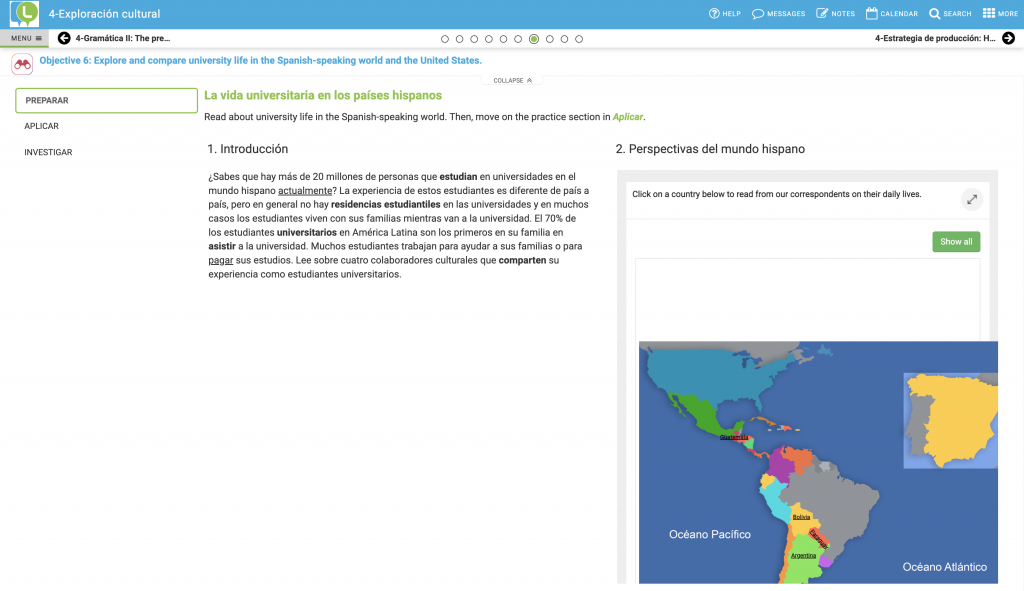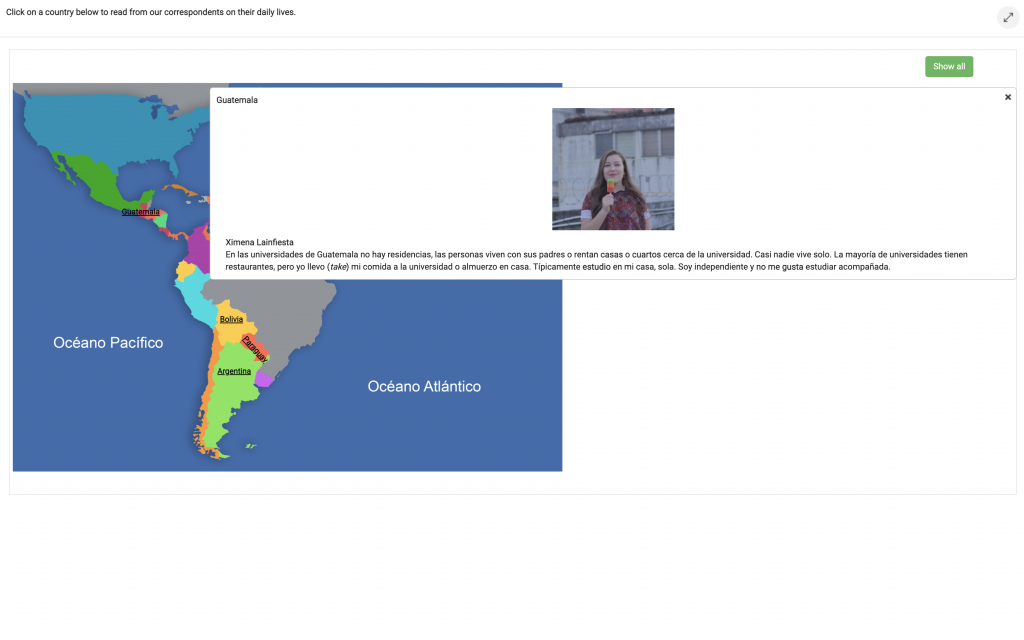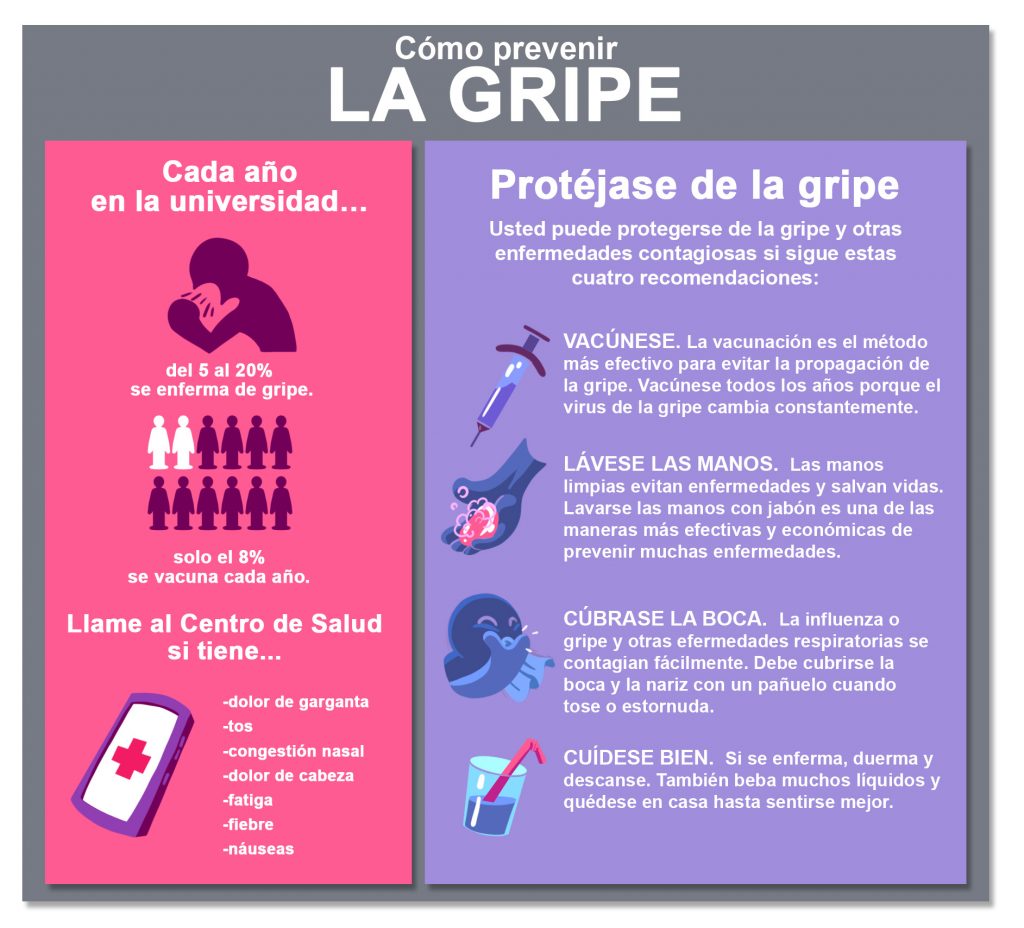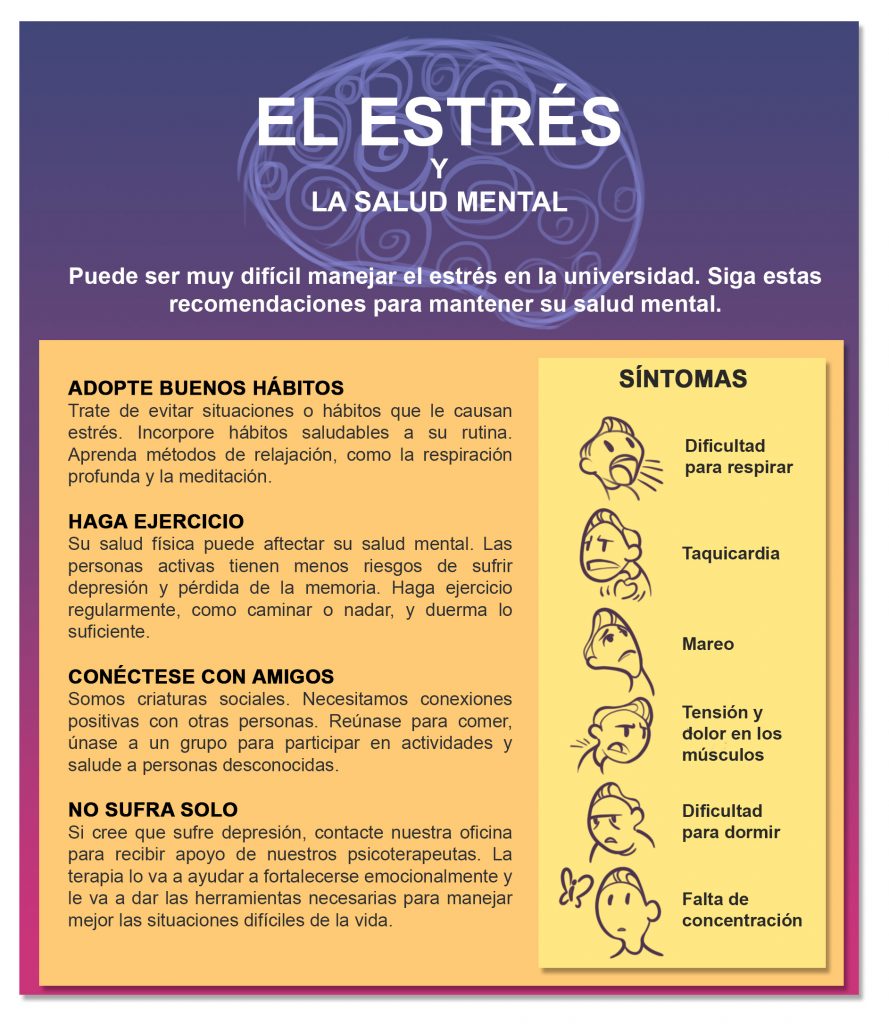Interpretive, Interpersonal, and Presentational Modes of Communication
Exploring Culture
Within Lingro Learning, the “Cultura” sections of each module gave me an understanding of hispanic cultural perspectives. I learned of other countries’ family dynamics, meals, cultures, and more. It was interesting to see the differences in culture between other countries and my own, but I learned there were also more similarities than I thought.
In the “Cultura” section, we were given an overview of how whatever we were learning about was viewed in Spanish speaking countries. We were also able to read about specific experiences from each country. I found this especially helpful in understanding values and attitudes of Spanish culture because it felt more personal than just the overview alone. It was challenging to try and remember which aspects of certain cultures belonged to which country, but I loved being able to learn about cultures that I would normally have minimal knowledge of. Growing up I had always heard the racist stereotypes of hispanic countries being “poor” and “dirty”, when in reality they are filled with rich culture, beautiful landscapes, and so much more. I appreciate being able to not just learn the language, but learn the culture and the people who speak it as well.
Engaging in Communities
Growing up, I never really engaged much outside of my immediate community. Through experiences such as this course, I have been able to realize the importance of diversifying your experiences and learning about and engaging with the global community. Of course engaging with your local community is just as important, but if you limit yourself and do not expand your horizons you will never grow as a person.
Kentucky for their national competition where all 50 states and territories were represented. Being able to meet people from all walks of life and all over the world puts into perspective how small my local community is and how exciting it can be to open yourself to other people and their cultures. I am still friends with many of these people today, many of whom were from Spanish speaking communities themselves and I was able to practice my Spanish with them while learning about their communities.
Interpersonal Communication
Using TalkAbroad, I was able to practice communicating with Spanish speakers from all over the world. It was very easy to use and they have speakers who are certified for beginners, which helped me feel more comfortable. I had 2 conversations using TalkAbroad and the people I spoke with were comfortable and easy to speak with and helped me enhance my speaking and comprehension skills.
I was very nervous to use TalkAbroad as I had never spoken with a native Spanish speaker that I was not familiar with. I found out that I am better at comprehension and finding context clues than I thought so that was a big confidence boost. It was difficult at times to understand some people’s accents, but it was not a big issue. I loved being able to practice my conversation skills live and in person with someone. Next time I would read my guidelines for the conversation more and try to keep the conversation on topic, I have a bad habit of getting invested in the conversation and getting off topic.
Presentational Speaking
For one of our presentational assignments, we had to create a video about one of our favorite foods. We had to talk about the ingredients, how to prepare it, and who we ate it with. We also had to show pictures of the food as well.
In the presentation, I talked about an easy dinner my mom makes called salsa chicken. It is one of my favorite foods and it was relatively easy to describe what ingredients went into it. I felt confident describing how healthy and tasty it was and how I ate it with family and friends. I struggled trying to find correct wording for how to prepare it, so I will definitely take more time preparing next time to make sure I am confident in what I am saying.
Presentational Writing
We had many opportunities to create discussion board posts for our peers to view and respond to. They were partially in Spanish and English, so we could practice our Spanish and have the opportunity for our classmates to understand as well.
One of the discussion board posts we made was in reference to gender stereotypes in the workplace. I made sure to go back and review my vocabulary before making the post, so I work on brushing up on my vocabulary in general. Overall I did not have many issues with this post and I thought it was very interesting.

Interpretive Listening
In relation to the discussion posts, we usually made them in response to a certain video. With the post above, we watched a video where Spanish speaking children talked about what they wanted to be when they grew up.
Even though it was a video, I really only focused on the audio. It was difficult to understand the children at first because some of them had thick accents and spoke quickly, but after listening to it a couple of times I was able to understand. It was really interesting to listen to children, as I had only ever listened to adults speak Spanish. It was helpful trying to decipher what they were saying as they were speaking in basic and easy to understand terminology.
Interpretive Reading
For one of our modules, we learned about physical and mental health. We were given posters related to overall health to read and they were referenced through the entirety of the module.
We had to reference the posters to make sure we understood what they said and what they were referencing. It was a bit intimidating to see a poster fully in Spanish and I was expected to understand it, but once I broke it down and used context clues I was able to understand the posters. I learned how to better take care of my physical and mental health while learning how to describe it in Spanish as well.




